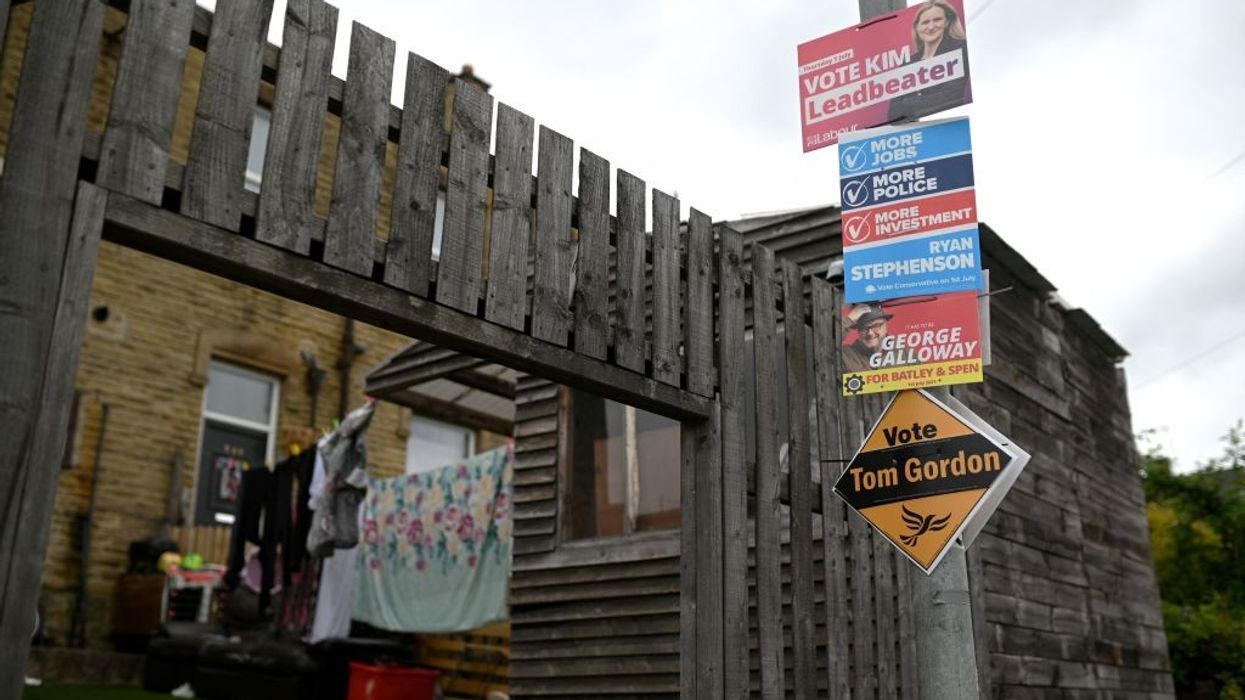A group of Muslim women from Batley and Spen have written an open letter condemning “shameful” behaviour of a “loud minority” of Muslim men, reported The Guardian.
The letter, written anonymously citing safety fears, described the men as “the same faces that have plagued the area as ‘community leaders’ for many years” but do not represent them.
They have been “endlessly heard” during the tense byelection campaign has brought the community “into the limelight for all the wrong reasons”, it added.
The letter, circulated among local WhatsApp groups on Tuesday (29) evening, just two days before the culmination of the election campaign, The Guardian report added.
In the letter, the women added that they were less vocal during the campaign because they do not 'feel the need to shout, be aggressive or harass people in the streets or online'.
“We cannot claim to be championing the cause of Palestine whilst ignoring the [Muslim practice] of peace and tolerance,” the letter added.
Palestine was the focal point in the campaign, which follows an upsurge of violence in the region. George Galloway, the pro-Palestine campaigner and former Labour MP who is standing in the election, has focused on the anger and disillusionment felt towards Labour on the issue.
The Labour candidate, Kim Leadbeater, the younger sister of Jo Cox, the former MP for the seat who was murdered by a far-right terrorist in 2016, was chased and heckled last Friday (25) by an anti-LGBT campaigner from Birmingham.
She said the incident had caused “a huge amount of distress”.
On Sunday (27), another group of Labour activists were physically attacked and egged, with one man kicked while on the ground.
The home of a 77-year-old retired GP, who was assaulted during the incident, was then targeted, with a Labour campaign poster removed and replaced with one supporting Galloway. Police, an increasingly regular presence in some areas, are investigating both incidents. A spokesperson for Galloway denied any involvement.
According to the report, the letter castigates those involved for “loud, aggressive and intimidating behaviour” that it says serves to reinforce stereotypes of Muslim men as oppressive.
It also calls on community groups and religious centres to “step up”, accusing local organisations of failing to provide services for Muslim couples seeking marriage counselling, women suffering from domestic violence or those struggling with addiction.
In reference to the 16 candidates on the ballot paper, including several from far-right groups, the letter states that the election is “no longer simply about Labour/Conservative/far-right or Galloway.
According to the letter, the deep cuts in the community will remain even after the elections and whoever wins will face a huge challenge to bring everyone together.
A response also spread on WhatsApp, accuses the letter-writers of making unfounded accusations and of misandry – a prejudice against men, the report added.





